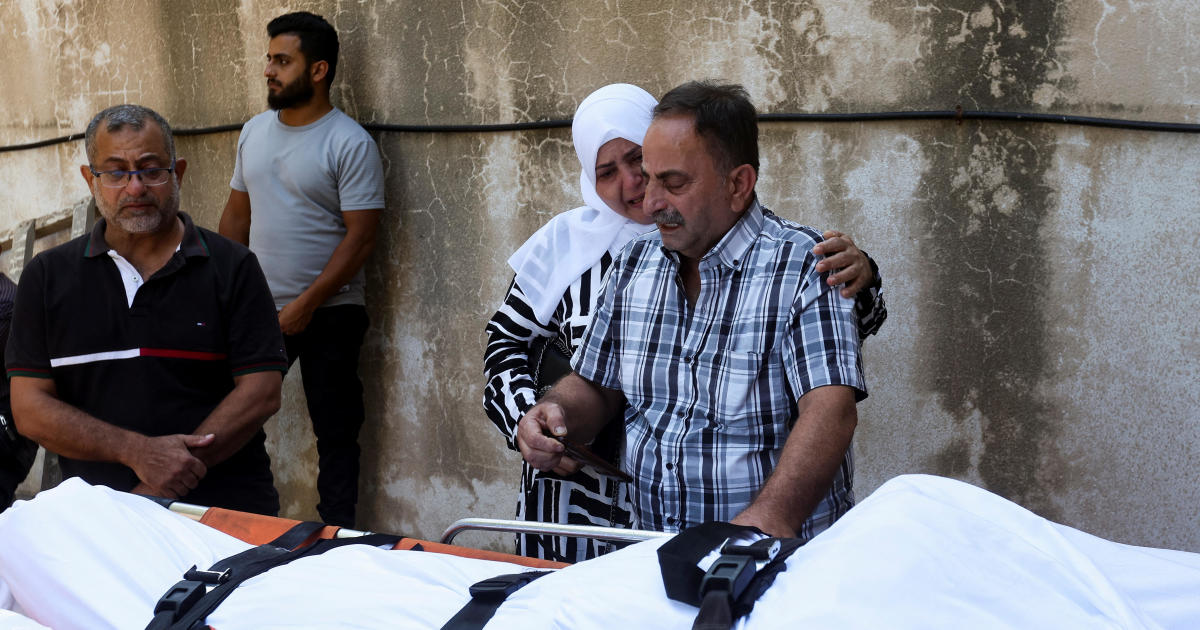The escalating conflict between Israel and Hezbollah in Lebanon has ignited widespread concern about a potential regional war. Israel’s recent airstrikes, extending beyond Lebanon to targets in Yemen, and the confirmed intention to initiate a ground incursion, represent a significant escalation of the already volatile situation. The assassination of Hezbollah leader Hassan Nasrallah has further inflamed tensions, prompting retaliatory attacks and a humanitarian crisis in Lebanon. This situation, coupled with the ongoing conflict in Gaza, threatens to draw in regional and global powers, potentially leading to a wider, devastating war. The international community, including the United States, is urging restraint and working to prevent further escalation. The impact on civilian populations, with massive displacement and casualties, underscores the urgent need for a peaceful resolution.
The Israeli Offensive and Hezbollah’s Response
Airstrikes and Ground Incursion
Israel’s military campaign against Hezbollah has involved intense airstrikes targeting military infrastructure and leadership figures. This aggressive approach has dealt significant blows to Hezbollah, resulting in the death of numerous commanders, including Nasrallah. However, the assassination of such high-ranking individuals has sparked a significant escalation in the conflict. Israel’s declared intent to initiate a ground incursion signals a major shift in tactics, raising the stakes considerably and increasing the likelihood of significant civilian casualties. The reported scale of these operations, extending beyond Lebanon’s borders to Yemen, indicates a broad-reaching strategic offensive aimed at crippling Hezbollah’s capabilities. The scope and intensity of these operations far surpass previous actions and present a serious threat of full-scale regional conflict. The deployment of tanks and armored vehicles along the border is further evidence of Israel’s preparedness for a significant ground operation. The timing and scale of this incursion raise significant concerns about regional stability and the potential for devastating human losses.
Hezbollah’s Retaliation and Capabilities
Despite suffering significant losses, Hezbollah remains defiant. The group, under the leadership of its deputy Naim Qassem, vows to continue its attacks against Israel. While Hezbollah’s rocket and drone attacks have been met with strong Israeli air defenses, limiting their effectiveness, their continued response signifies ongoing resistance and determination to continue the conflict. Despite claims of diminished military capabilities, Hezbollah maintains its readiness for a prolonged confrontation, highlighting the persistence and resilience of the group despite recent setbacks. Their vowed continuation of the fight in support of Palestine underlines the wider regional dimensions of the conflict and points towards protracted regional instability. Hezbollah’s ability to maintain operational effectiveness amid heavy losses remains a critical element in assessing the current and future trajectory of the conflict.
Humanitarian Crisis in Lebanon
Civilian Casualties and Displacement
The Israeli military campaign in Lebanon has had devastating consequences for the civilian population. Hundreds of civilians have been killed, and over a million have been displaced from their homes, many fleeing south Lebanon for Beirut and other locations north. The scale of the displacement represents a significant humanitarian challenge. The relentless bombardment has left many families with minimal possessions, seeking shelter in mosques and other public places. These people face dire circumstances, lacking basic necessities and desperately needing aid and protection from further attacks. Hospitals are overflowing with the injured, exacerbating existing healthcare limitations. International humanitarian agencies must step up relief efforts and assist those whose lives have been dramatically disrupted by the ongoing violence.
Refuge and Displacement
The exodus of civilians, notably including families with young children, illustrates the devastating effect of the ongoing hostilities on innocent lives. The scenes of displaced individuals finding shelter in public areas, such as the Blue Mosque, underscore the urgency and severity of the humanitarian crisis. The impact on children and the potential for long-term trauma due to exposure to intense fighting add a layer of complex societal issues and long-term recovery hurdles. The descriptions of mothers shielding their children from the realities of war encapsulate the emotional toll of such prolonged conflicts. There’s a massive need for global aid, resources, and a push towards establishing secure refuge and emergency housing facilities to assist displaced Lebanese families.
International Involvement and the Risk of Regional War
US Involvement and Regional Alliances
The United States’ involvement in this conflict has grown with concern over potential regional instability. Despite President Biden’s warning against all-out war, the escalating military actions raise fears of further intervention, potentially pulling in other global powers. Israel’s notification to the U.S. about the ground incursion underscores the extent to which the conflict already has international ramifications. The complexities of existing regional alliances add further risks, potentially escalating the situation beyond current levels. A full-blown regional war involving multiple countries would have calamitous global implications. Careful and deliberate action by the involved powers and global intermediaries is required to de-escalate and secure lasting peace in the area.
Potential for Regional Escalation
The potential for this conflict to escalate into a broader regional war is very real. The involvement of Iran, backing Hezbollah, and the potential for further US involvement increases the risk. Hezbollah’s continued attacks and Israel’s aggressive military response indicate the immediate possibility of uncontrolled spread into further regional disputes. There are substantial risks that countries in the region with ongoing or historical conflict with one another could be drawn into the current fight. The international community’s responsibility to prevent such uncontrolled escalation cannot be overstated, highlighting the necessity of immediate action and long-term conflict resolution initiatives.
Take Away Points:
- The conflict between Israel and Hezbollah has drastically escalated, raising concerns about a larger regional war.
- Israel’s offensive, involving airstrikes and a planned ground incursion, has inflicted significant damage on Hezbollah.
- The conflict has resulted in a major humanitarian crisis in Lebanon, with widespread civilian casualties and displacement.
- The international community, particularly the United States, is deeply involved and faces the challenge of preventing further escalation.




